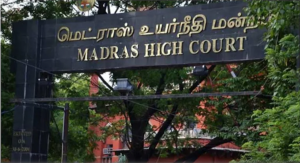 The Madras High Court in the case of Tvl. SKL Exports v. Deputy Commissioner (ST)(GST)(Appeal) vide W.P. NOS. 6825, 6828, 6829, 7612, 7613, 7620, 7623, 7619 & 7621 OF 2024 dated 14.03.2024, has emphasized that the rectification petitions were filed within the allowed timeframe and that the appeals were filed soon after the rejection of these petitions. Directed the appellate authority to admit an appeal filed after a rectification rejection, provided the taxpayer filed the appeal promptly and paid the required tax.
The Madras High Court in the case of Tvl. SKL Exports v. Deputy Commissioner (ST)(GST)(Appeal) vide W.P. NOS. 6825, 6828, 6829, 7612, 7613, 7620, 7623, 7619 & 7621 OF 2024 dated 14.03.2024, has emphasized that the rectification petitions were filed within the allowed timeframe and that the appeals were filed soon after the rejection of these petitions. Directed the appellate authority to admit an appeal filed after a rectification rejection, provided the taxpayer filed the appeal promptly and paid the required tax.
The court facilitated a fair hearing by directing the appellate authority to consider the appeals on their merits, emphasizing substantial compliance and the petitioner’s intent to resolve the tax demands. The court’s decision to lift the bank attachment and allow for a refund application further supports the petitioner’s ability to address the tax issues comprehensively. This approach underscores the principle of providing a reasonable opportunity to contest tax demands, especially when procedural delays are reasonably explained.
Facts of the Case:- The petitioner received assessment orders and subsequently filed rectification petitions against these orders. These rectification petitions were rejected. Subsequently, the petitioner then filed appeals against the original assessment orders. The appellate authority rejected these appeals on the ground that they were filed beyond the period of limitation prescribed in Section 107 of the CGST Act, 2017. Consequently, the petitioner filed writ petitions against the rejection of the appeals, deeming them barred by limitation.
The Petitioner argued that the rectification petitions were filed within the prescribed period of limitation and were rejected on 29.01.2024. Appeals were filed shortly after the rectification petitions were rejected. Further, argued that the delay was justifiable because the rectification petitions were filed within the prescribed period.
They highlighted their compliance efforts, including the deposit of 10% of the disputed tax and the appropriation of Rs 1,26,02,698 from their bank account towards the tax demand.
However, the respondents was constrained to reject the appeals since they were presented beyond the period prescribed under Section 107 of the CGST Act, 2017.
Held:- The Court noted that the appellate orders indicated that the appeals were filed 21 to 24 days beyond the permissible condonable period. The court acknowledged the petitioner’s explanation for the delay, noting that the rectification petitions were pending and appeals were filed soon after their rejection. The court emphasized that the rectification petitions were filed within the allowed timeframe and that the appeals were filed soon after the rejection of these petitions.
The Court stated that Filing rectification petitions does not stop the appeal period, but the court considered the filing of such petitions and the subsequent appeal timing as a reasonable cause for delay. The petitioner’s actions, including partial payment and significant amounts appropriated by the authorities, were seen as efforts to comply with tax demands.
Directed the appellate authority to consider the appeals on merits ensures that procedural delays do not impede substantive justice. Also, the court allowed the petitioner to apply for a refund of the appropriated amount from their bank account and ordered the lifting of the bank attachment.
The Court marks a significant development in the interpretation of procedural limitations under GST laws. The judgment provides a balanced approach towards handling delays in filing appeals, emphasizing the need to prioritize substantive justice over procedural technicalities.
To read the complete judgment 2024 Taxo.online 1230


